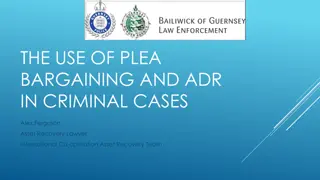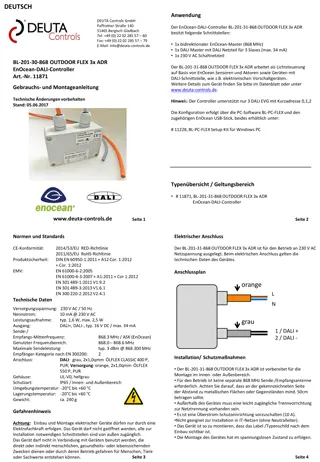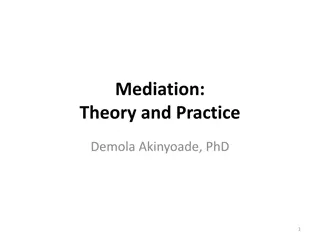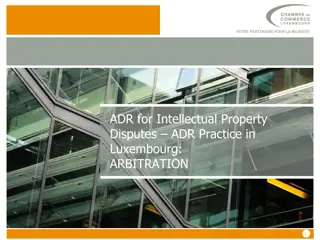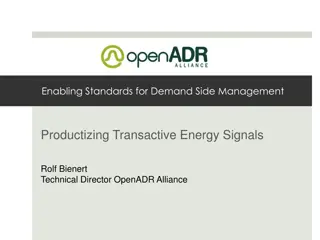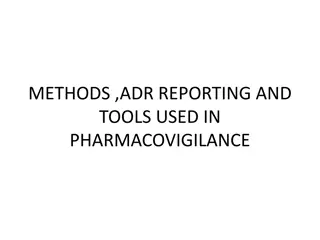
Understanding Alternative Dispute Resolution (ADR) Methods
Discover the world of Alternative Dispute Resolution (ADR) and its significance in law. Learn about various ADR methods like arbitration, mediation, negotiation, and conciliation for resolving disputes efficiently outside traditional court systems.
Download Presentation

Please find below an Image/Link to download the presentation.
The content on the website is provided AS IS for your information and personal use only. It may not be sold, licensed, or shared on other websites without obtaining consent from the author. If you encounter any issues during the download, it is possible that the publisher has removed the file from their server.
You are allowed to download the files provided on this website for personal or commercial use, subject to the condition that they are used lawfully. All files are the property of their respective owners.
The content on the website is provided AS IS for your information and personal use only. It may not be sold, licensed, or shared on other websites without obtaining consent from the author.
E N D
Presentation Transcript
What is ADR? Have you heard of it before? What area of law does it concern? Why has is come about?
Reasons for alternatives to the courts? Reasons for alternatives to the courts?
Reasons for alternatives to the courts? Reasons for alternatives to the courts? Suitability!? Expensive!? Slow!? Procedures!?
Types Tribunals Arbitration Mediation Negotiation Conciliation
Tribunals Result of the Franks Committee on Tribunals and the Tribunal and Enquiries Act 1958 Administrative/Domestic disputes Natural Justice Consists of 3 members? Solicitors or Barristers? Expense? Reasons for decisions
Arbitration Arbitration Act 1979/1996 Disputes? Arbitrator Scott v Avery Clause Public or Private Hearing? Appeal: S.68 S.69
Mediation 3rd Party Who resolves the dispute? What does the Mediator do? Disputes? Who is involved? The Family Law Act 1996
Negotiation First method in resolving any dispute Communicate directly legally represented? When does this happen or when is the most common time for this to happen? Disputes? NO 3rd PARTY
Conciliation Conciliator is neutral and is not acting on behalf of any party So what is the difference between this and Mediation? Disputes?
P4: Describe the types of Alternative Dispute Resolution (ADR) Another area that you have been asked by your manager to cover includes ADR. In order to transfer your knowledge to your colleagues, you have been asked to individually create a presentation to be delivered during your training sessions which; List the different methods of ADR Describe what each method entails
P4 Presentation Structure: List different types of ADR Then for each type of ADR you must provide the following information: A Summary of that type of ADR Disputes that use this type The People involved The Procedure Remember to include any relevant Legislation/Acts of Parliament and cases







